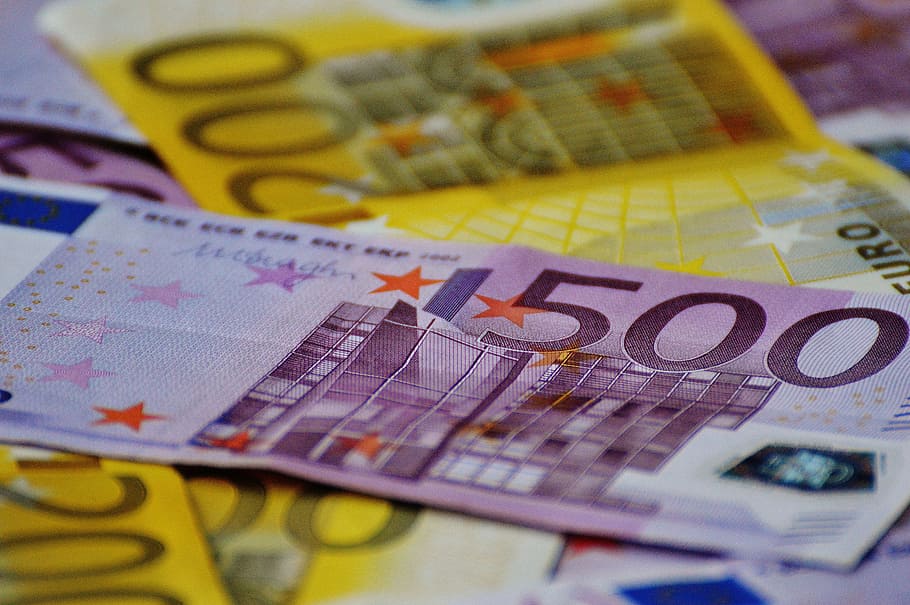
The French press has been alerted to the existence of these affairs for many months, but it is only now, after the presidential election that led to the re-election of Emmanuel Macron, that the justice system is taking action: one of the president’s closest advisers and one of his ministers of justice both find themselves under investigation and threatened with trials.
The secretary general of the Elysée—also the adviser and friend to the French president—Alexis Kohler, has just been put under investigation for “illegal taking of interests.”
This is the outcome of a long investigation carried out patiently by several judicial bodies for several years. The facts date back some ten years. Alexis Kohler is accused of not having disclosed his close family ties with the main shareholder of the Italian-Swiss maritime freight operator Mediterranean Shipping Company (MSC). It appears Kohler took up causes in this operator’s favour on several occasions in the name of the State—for contracts sometimes reaching several billion. The case has multiple ramifications, since some members of the Italian family of Alexis Kohler, the head of MSC, may have suspicious relations with mafia circles.
The first press articles about Alexis Kohler, published in the investigation newspaper Mediapart, and the first investigations conducted by Anticor—an independent organisation in charge of fighting corruption—date back four and a half years ago. The investigation has undergone multiple referrals and cancellations, which suggest that there has been interference in high places to prevent it from moving forward. Referred to by Anticor on two occasions, the National Financial Prosecutor’s Office, a public body created in 2013 to track down major financial delinquency (it was responsible in particular for the downfall of right-wing candidate François Fillon before the 2017 presidential elections), had curiously closed the Kohler affair without follow-up in 2019—after a personal intervention by Emmanuel Macron, Mediapart revealed.
The anti-corruption association was cleared to relaunch the investigation in June 2020, thanks to the filing of a complaint lodged at the end of 2019, which led to the appointment of an investigating judge and the opening of a judicial investigation for “illegal taking of interests,” “influence peddling,” and “failure to declare to the High Authority for the transparency of public life.” It is this complaint that led to the indictment of the Secretary General of the Élysée on Wednesday, September 23rd.
The press only learned of his indictment ten days later, fuelling rumours about the control of information by the Elysée. In a statement released on Monday, October 3rd, Kohler’s lawyer said that his client “strongly denies having committed any offence.” According to the Élysée, Alexis Kohler remains for the moment in his post.
The case is very bad for Emmanuel Macron.
Alexis Kohler played a key role in the career of the current president. At the time of Emmanuel Macron’s first campaign, in 2016-2017, Alexis Kohler was financial director of MSC and was deeply involved in the candidate’s campaign teams, with a mix of associations that an analysis of his correspondence reveals. Kohler is also no stranger to the nomination of Elisabeth Borne as Prime Minister, as they have in the past worked in the same cabinet. Since Borne’s appointment, working meetings have been held between three people: Emmanuel Macron, Elisabeth Borne, and Alexis Kohler.
The scandals do not stop there. The minister of justice himself, Éric Dupont-Moretti, is also in turmoil. He was indicted in July 2021, also for “illegal taking of interests.” Since January 2021, he has been suspected of having taken advantage of his position to settle accounts with magistrates with whom he had had run-ins when he was a lawyer. However, this blot upon his character did not prevent him from being reappointed as minister after the re-election of Emmanuel Macron.
Now, the threat that his shady deals may come to light is becoming clearer, since on Monday, October 3rd, it was announced that his case must now be referred to the Court of Justice of the Republic for trial. This court is the only one empowered to judge ministers prosecuted for crimes or offences committed in the exercise of their functions. It is an unprecedented situation, as a minister still in office must prepare for trial—a first since the creation of this special court in 1993.
For the time being, it is expected that Dupont-Moretti will be kept in office, giving the lie to a statement by Emmanuel Macron that a member of the government under investigation should not remain in office. The president considers these cases a challenge to his political authority, which he has no intention of yielding to. For the moment, there has been no official reaction from the Élysée in either affair. The president may expect them to be forgotten and drowned in the stream of everyday news. Yet the attacks of the opposition are multiplying in the face of the denial of the principles of public probity that he himself had enacted. Marine Le Pen has explicitly called for the dismissal of Alexis Kohler. The Secretary General of the Socialist Party Olivier Faure also protested against his continued employment: “Secretary General of the Elysée, it is not nothing: he is the second most powerful man in the French state and now he remains in the Elysée. How is this possible? How can you keep any credibility?” he told the radio network, France Info.
European authorities, quick to denounce other governments, such as Viktor Orbán’s in Hungary as ‘corrupt,’ have not yet reacted to these cases.
